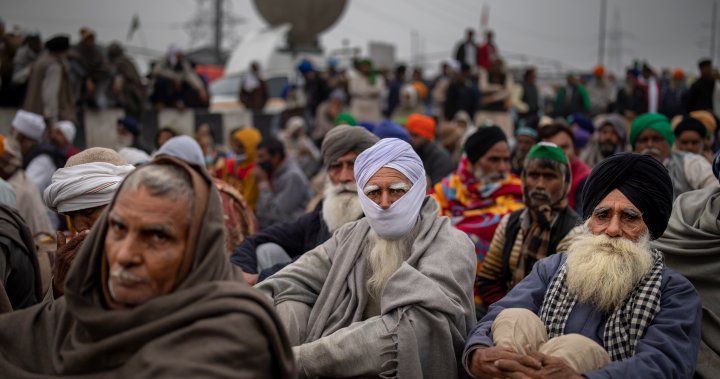
Local community members react to controversial agriculture laws being repealed in India
Global News
In a surprise announcement Friday, Indian Prime Minister Narendra Modi, announced he will repeal controversial agriculture laws in India that prompted year long protests around the world. Despite the victory, Indian community members in Kelowna feel the move is political and they are still waiting for action. “I am pretty sure that until the farm...
In a surprise announcement Friday, Indian Prime Minister Narendra Modi, announced he will repeal controversial agriculture laws in India that prompted year long protests around the world.
Despite the victory, Indian community members in Kelowna feel the move is political and they are still waiting for action.
“I am pretty sure that until the farm laws are repealed in the parliament, the protests will continue and farmers will still occupy the borders of New Delhi”, says Amarjit Singh Lalli, President of the Okanagan Sikh Temple.
According to the Indian Government, the agricultural laws were necessary to modernize India and boost production through private investment, but farmers protested saying the new legislation would force them to sell their crops to corporations at cheaper prices.
With key elections ahead in states like Punjab and on the day of the Guru Purab Festival when Sikhs, who make up majority of protestors, celebrate their founder Guru Nanak’s birthday, community advocates are weary.
“Mr. Modi was looking at the different events in the Sikh calendar, so this was one of those occasions — what the farm laws stood for and what the protestors were fighting for — it just solidified that this was the day that this was going to come to an end”, adds Lalli.
Many people involved in the protest were not from India, but they still felt it was incredibly amazing to see members of the community come together worldwide to achieve this victory.
Gurpreet Bassi organized many of the protests to support farmers here in Kelowna, his parents are in India and were on the frontlines of the protests in New Delhi. Bassi explains how the movement will impact generations to come.





















 Run 3 Space | Play Space Running Game
Run 3 Space | Play Space Running Game Traffic Jam 3D | Online Racing Game
Traffic Jam 3D | Online Racing Game Duck Hunt | Play Old Classic Game
Duck Hunt | Play Old Classic Game








